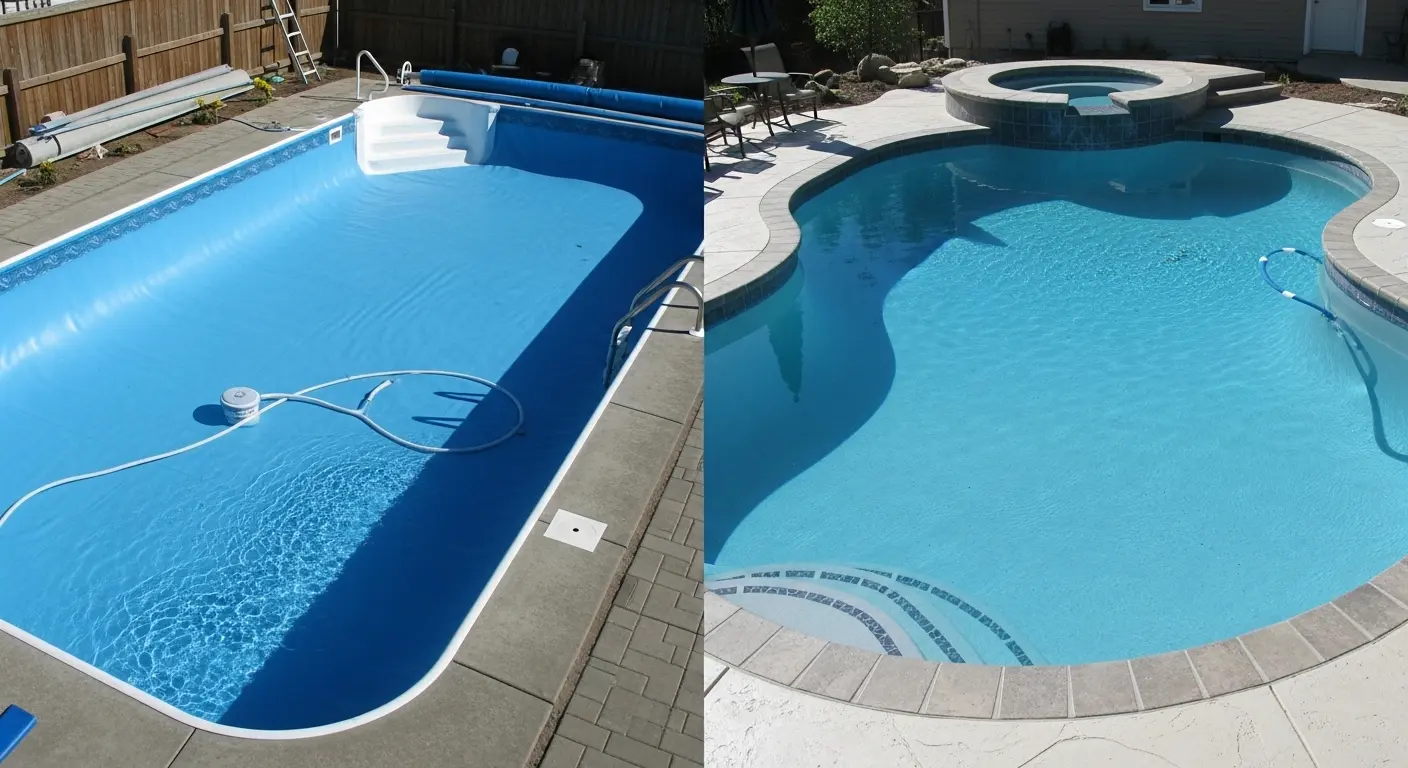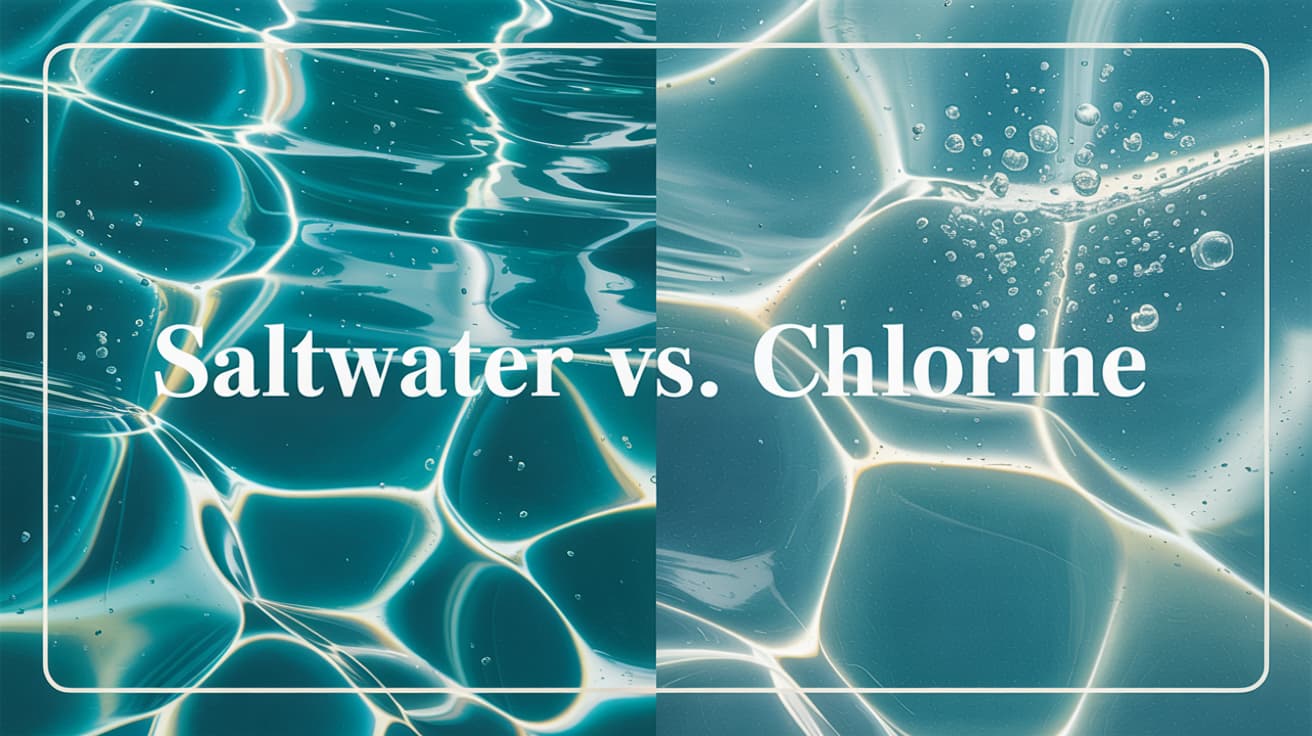Identifying and Fixing Pool Plumbing Leak Repair: A Comprehensive Guide To Slab Leaks and Swimming Pool Leaks

Tackling Pool Plumbing Leaks: A Complete Guide for Pool Owners
A pool plumbing leak can be a nightmare for pool owners, leading to water loss, increased bills, and potential damage to the pool structure. Whether it's a minor drip or a significant leak, understanding how to detect and fix these issues is crucial for maintaining the health and efficiency of your pool. This guide will walk you through the essential steps in identifying and repairing pool plumbing leaks, ensuring your pool remains a source of joy and relaxation.
What is a Pool Plumbing Leak?
A pool plumbing leak occurs when the pipes or fixtures that carry water to and from your pool develop cracks or breaks. These leaks can manifest in various areas, including the plumbing lines, skimmers, and main drains, leading to water escaping from the pool system.
Signs of a Pool Plumbing Leak:
- Unexpected Water Loss: If you're frequently adding water to your pool, you might have a leak.
- Wet Spots Around the Pool: Noticeable wet areas around the pool or equipment pad.
- Increased Water Bills: Unexplained spikes in your water bill can indicate a leak.
- Air in the Pool System: Bubbling or air noises in the pool plumbing.
Common Causes of Pool Plumbing Leaks
Pool leaks can be attributed to several factors, often linked to the wear and tear of pool infrastructure.
1. Aging Pipes:
- Deterioration Over Time: Old pipes can develop cracks or breaks.
- Material Fatigue: PVC or other materials can weaken.
2. Ground Shifts:
- Shifting Soil: Movements in the ground can stress and crack pool pipes.
- Foundation Settling: Natural settling of the pool structure.
3. Improper Installation:
- Faulty Connections: Poor connections or fittings can leak.
- Incorrect Pipe Sizing: Using wrong-sized pipes can lead to leaks at joints.
Detecting Pool Plumbing Leaks
Effective leak detection is crucial to prevent extensive damage and high repair costs. Here are some methods to detect leaks:
**1. Visual Inspection:
- Look for Wet Spots: Check for damp areas around the pool, equipment pad, and plumbing lines.
- Inspect the Pool Surface: Cracks or stains might indicate a leak.
**2. Pressure Testing:
- Check for Pressure Drops: Use a pressure gauge to detect drops in the plumbing system.
- Isolate Sections: Test individual sections to pinpoint leaks.
**3. Dye Test:
- Use Pool Leak Detection Dye: Apply dye near suspected leak areas; the dye will be drawn into the leak.
- Monitor Movement: Observe dye movement to identify the leak source.
Performing a Bucket Test for Leak Detection

The bucket test is a simple yet effective way to determine if your pool is leaking.
Steps to Conduct a Bucket Test:
- Fill a Bucket: Fill a bucket with water and place it on a pool step, ensuring the water levels inside the bucket and pool are the same.
- Mark Water Levels: Mark the water levels inside and outside the bucket.
- Monitor for 24 Hours: Leave the bucket for 24 hours, then compare the water levels. If the pool water level drops more than the bucket, a leak is likely.
Understanding the Plumbing System of Your Pool
A pool's plumbing system is a complex network that includes several critical components.
Key Components:
- Skimmer: Collects debris from the pool surface.
- Main Drain: Draws water from the pool's bottom.
- Return Lines: Circulate water back to the pool.
- Pump and Filter: Essential for water circulation and filtration.
How Leaks Affect the System:
- Reduced Efficiency: Leaks can lower the pump's efficiency.
- Water Loss: Continuous leaks can lead to significant water loss.
Identifying Leaks in Different Pool Areas
Different areas in and around the pool can be prone to leaks.
**1. Skimmer Leaks:
- Cracked Skimmers: Cracks in the skimmer can cause leaks.
- Loose Fittings: Ensure skimmer fittings are tight.
**2. Main Drain Leaks:
- Drain Cracks: Check for cracks in the main drain cover.
- Seal Issues: Ensure the main drain seal is intact.
**3. Return Line Leaks:
- Pipe Cracks: Inspect return lines for cracks or breaks.
- Loose Connections: Tighten any loose fittings.
Steps to Repair Pool Plumbing Leaks
Once you've identified a pool plumbing leak, it's time to repair it.
**1. Fixing Small Leaks:
- Use Pool Putty: Apply pool putty to small cracks or leaks.
- Replace Gaskets: Swap out worn gaskets to stop leaks.
**2. Repairing Major Leaks:
- Replace Pipes: If a pipe is severely cracked, it may need replacement.
- Re-seal Fittings: Apply sealant to loose or leaky fittings.
**3. Professional Repairs:
- Hire a Leak Detection Specialist: For complex leaks, professional help is recommended.
- Consider Upgrades: Sometimes replacing old plumbing with new can prevent future leaks.
Preventing Future Pool Plumbing Leaks
Preventative maintenance can help avoid pool plumbing leaks.
Tips for Prevention:
- Regular Inspections: Periodically inspect the plumbing system.
- Seasonal Maintenance: Prepare your pool for winter or long periods of inactivity.
- Professional Servicing: Schedule annual checks with a professional.
When to Call a Professional

Some leaks are too complex for DIY fixes.
When to Call a Pro:
- Persistent Leaks: If the leak continues despite your efforts.
- Major Repairs: Significant damage or pipe replacements.
- Expert Advice: For complex systems or new installations.
The Role of Pool Leak Detection Specialists
Pool leak detection specialists bring expertise and tools to locate and fix leaks.
Advantages:
- Advanced Tools: Use of specialized equipment for accurate detection.
- Experience: Skilled in identifying and repairing various leak types.
- Time-Saving: Quickly resolve issues, minimizing downtime.
Choosing the Right Pool Repair Company
Selecting the right pool repair company is crucial for effective repairs.
What to Look For:
- Experience and Reviews: Check company history and customer feedback.
- Services Offered: Ensure they provide the services you need.
- Certifications: Look for certifications and professional affiliations.
Contact Us for Your Pool Leak Repair Needs
At Pinnacle Pool USA, we specialize in pool plumbing leak repair and maintenance.
Why Choose Us:
- Experienced Technicians: Skilled in all aspects of pool repair.
- Comprehensive Services: From leak detection to full repairs.
- Customer Satisfaction: Committed to high-quality service and results.
Bullet Point Summary
- Detecting Pool Leaks: Use visual inspections, dye tests, and pressure tests.
- Common Leak Areas: Skimmers, main drains, and return lines.
- Repair Methods: Apply putty, replace pipes, or hire a professional.
- Preventative Measures: Regular inspections and seasonal maintenance.
- Professional Help: Essential for complex or persistent leaks.
Contact Pinnacle Pool USA for expert leak detection and repair services. Ensure your pool stays in perfect condition year-round!

Stay Informed with Our Blog
Get the latest tips and insights on pool maintenance, repair, and inspection.
View All Our Pool Services
From design to regular maintenance, explore our full suite of services designed to create and care for your pool.

Specializing in custom in-ground pools tailored to enhance your outdoor living space.

Offering a range of luxurious spas to complement your pool or serve as a standalone retreat.

Quick, Non-Invasive, No-Cutting Repairs for Your Pool Needs

Transform your pool area with beautiful, durable hardscaping options designed for elegance and functionality.

Expert replacement services to renew and protect your pool with high-quality vinyl liners.

Precise detection and repair of leaks to maintain the integrity and enjoyment of your pool.

Ensure the safety, functionality, and longevity of your pool with our comprehensive pool inspection services.
Ready to Dive into Your Dream Pool?
Contact us today to start your journey towards a backyard paradise with Pinnacle Pool and More.



.jpg)
